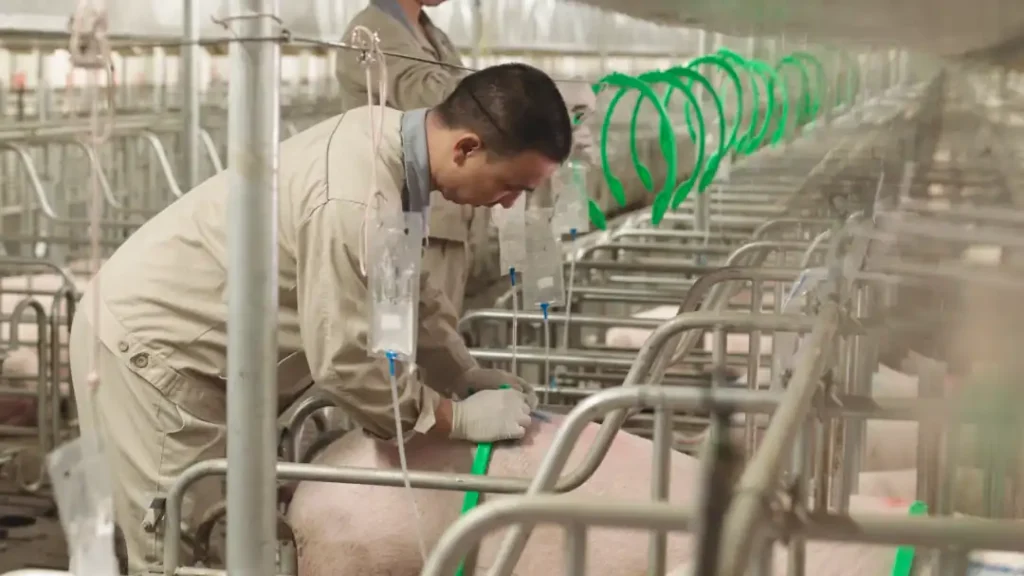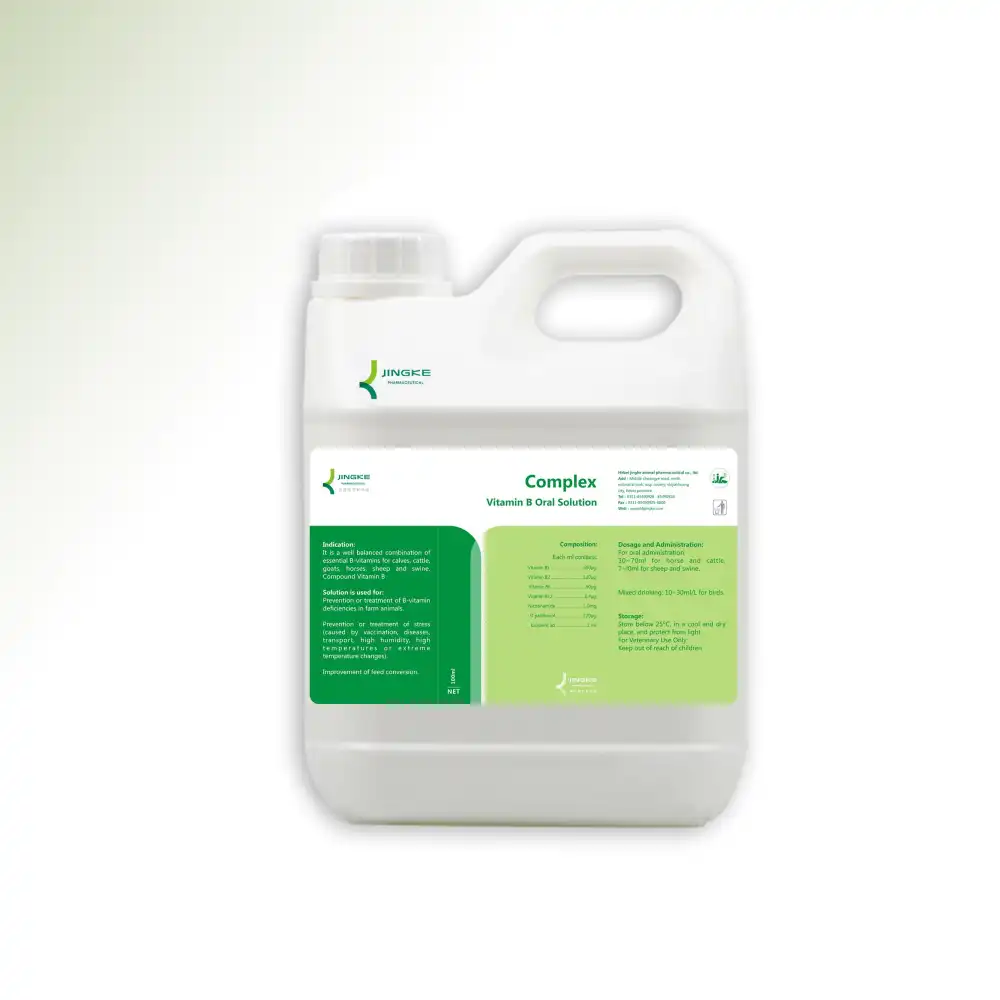Compound Vitamin B injection contains a variety of B vitamins. In the process of pig farming, if the diet lacks fresh green and succulent feed for a long time, it is easy to cause a deficiency of Vitamin B and other substances, leading to diseases that will severely affect pig growth. Compound Vitamin B injection, belonging to nutritional injections, can promptly supplement the Vitamin B deficiency in pigs and prevent the occurrence of some diseases. After a Vitamin B deficiency, pigs are prone to illness, and sick pigs mostly exhibit symptoms such as loss of appetite, diarrhea, vomiting, and slow growth, becoming stunted pigs. When pigs experience anorexia due to a prolonged lack of green fodder, appropriate use of Compound Vitamin B injection can alleviate some symptoms. Further improvement of the nutritional composition of the feed can help pigs recover health quickly. What kind of medicine is Compound Vitamin B? Let’s get to know it.

1. The Functions of Compound Vitamin B:
Compound Vitamin B injection is more refined than oral Vitamin B solution. It is a family of water-soluble vitamins composed of various nutrients, including Vitamin B1, B2, B6, B12, folic acid, pantothenic acid, and more. It can promote digestion in pigs and has a significant effect on relieving digestive system dysfunction. It has a certain therapeutic effect on livestock suffering from abdominal bloating and pain, gastrointestinal spasms, loss of appetite, rough coat, constipation, and slow-growing stunted pigs. These B vitamins are widely distributed in wheat bran, rice bran, green fodder, sprouted seeds, and yeast powder.
2. Vitamin B Deficiency Easily Leads to the Occurrence of Diseases:
During pig farming, if the feed lacks Vitamin B for a long time, it will induce Vitamin B deficiency in pigs. Affected pigs will develop chronic gastrointestinal diseases, fever, and be prone to diarrhea. If sows have a long-term lack of Vitamin B intake, their milk after farrowing will also lack the corresponding Vitamin B. Piglets have a vigorous metabolism and require more Vitamin B. If Vitamin B is insufficient, it will cause Vitamin B deficiency symptoms in piglets, such as slow growth and frequent diarrhea. In the process of pig farming, some farmers find that their pigs are prone to illness. As soon as they get sick, they use large amounts of antibiotics for injection treatment. The result is that excessive antibiotics inhibit the synthesis of B vitamins in the body, thereby increasing the likelihood of getting sick. Usually, without paying attention to Vitamin B supplementation, pregnant sows, lactating sows, and newborn piglets before their first feeding are most likely to be deficient. Some farmers also find that their sows, if not supplemented with B vitamins during pregnancy, and experience a Vitamin B2 deficiency, are prone to giving birth to piglets that die quickly after birth.
3. How to Use Compound Vitamin B Injection:
Administering Compound Vitamin B injection to pigs through drinking water or mixing it with feed is less effective and slower than injection. Once Vitamin B deficiency is confirmed, Vitamin B injection can be administered by subcutaneous injection behind the ear. For pregnant sows, inject 20 ml per sow once daily for three consecutive days, while also adjusting the feed.

